Bewaris lost both hands in the bomb blast, joined the conflict victim

We use Google Cloud Translation Services. Google requires we provide the following disclaimer relating to use of this service:
This service may contain translations powered by Google. Google disclaims all warranties related to the translations, expressed or implied, including any warranties of accuracy, reliability, and any implied warranties of merchantability, fitness for a particular purpose, and noninfringement.

Highlights
- Surendra Khatri of Myagdi, who lost both his hands in an explosion while chasing a goat in the forest, created a network of disabled conflict victims. Even after the peace agreement, the provision for compensation and justice for those injured in the blast was recently added to the law due to their vigilance.
- There was an armed conflict going on when I was blasted, but even after the peace agreement, many others were injured and maimed by landmines and unexploded bombs, these incidents cannot be ignored by the state.



Anyone who sees Surendra Bahadur Khatri for the first time is surrounded by joy and wonder at the same time. Seeing the energy in a smiling face and a lively life makes anyone's heart happy. But his heart flutters when he sees both of his hands, which are slightly below Kuina.

Innumerable strangers have asked him on the first meeting, 'What happened like this, how did this happen?'
Surendra resorted to the long sleeves of his jacket for almost a decade in order not to face this question.
'I don't like sympathy', they say, 'They say that this is due to the sins of others, I don't like this kind of mercy even more. That's why I didn't show my hands to anyone for eight years. Surendra's hands, who were born in Mangla Rural Municipality-2 Salyan, Magdi, were fine until 4 pm on June 12, 2063. Lahure Babu Lal Bahadur Khatri, an Indian Gurkha soldier, had a dream - to make his son a soldier as well. If you passed eight, you would be qualified to be recruited. Born on October 12, 2042, Surendra started his career in Lahure after reaching 10th standard without giving SLC. After mastering physical exercises, he went to Banaras in 2062 to be recruited. Selected in the race and also passed the physical examination.
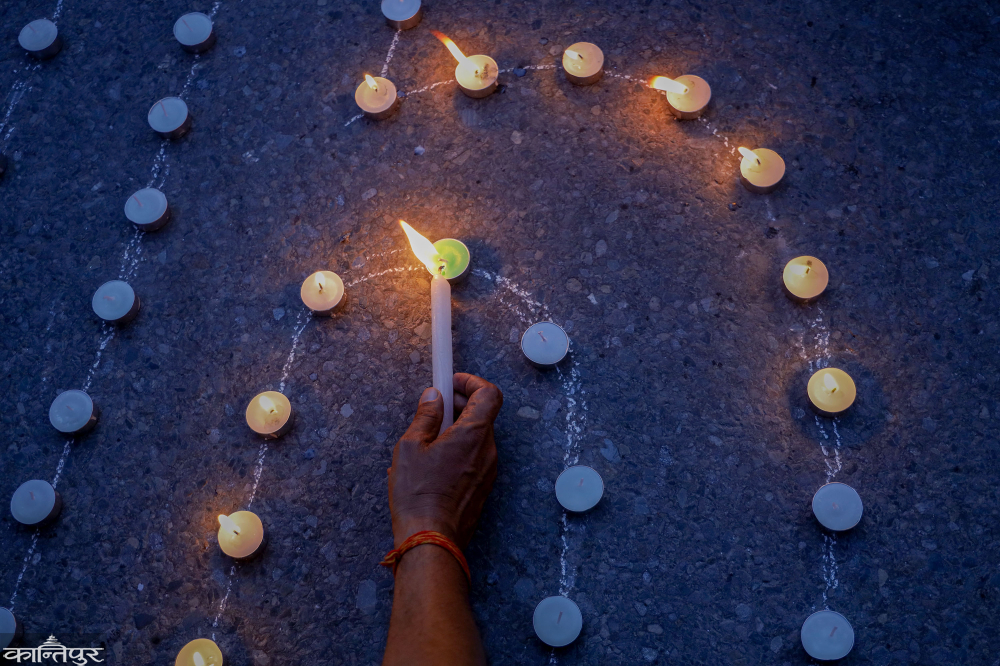
Now some paperwork had to be done. For that he returned home from Banaras. He was interested in volleyball. He also went to many places to play in many competitions in the district. On that day too, he left the goat in the nearby forest and left home to play Sutuk volleyball. But after reaching the forest, the goat ran away. Later, while running, his leg got tangled in a plastic bag. He noted what a
is. And sat down on a deal and started to open it. 'There was an explosion with a terrible sound, I fell,' Surendra said, 'I tried to raise my hand to wipe my eyes, but it didn't go away. When I forcibly lifted it, I was hit by hot vinegar, and my hand fell to the ground.' He fell without even taking two steps. He found out that he had a serious injury on the thigh below the waist, the tip of the big toe of the right foot, and the foot, etc., only after he was told by others. On that day, all the family members went to a distant farm for perm. Hearing the bomb, the neighbor came to see what happened and saw Surendra injured.
'He called my parents, others from the village also gathered,' says Surendra, 'he was wounded all over, blood was coming from his nose, mouth and eyes, no one dared to touch him.' Grandmother's son Maniraj GC came and reprimanded, 'What are you watching? He should be taken to the hospital as soon as possible. Lahure Maniraj of the Indian Army knew how to rescue an injured soldier. In that critical moment when there was no stretcher, the villagers made a wooden dola together. "They put me in it and carried it for four kilometers, the bus had just started running in the village below, they put me in the same bus and took me to the headquarters Beni, which is 15 kilometers away," says Surendra.
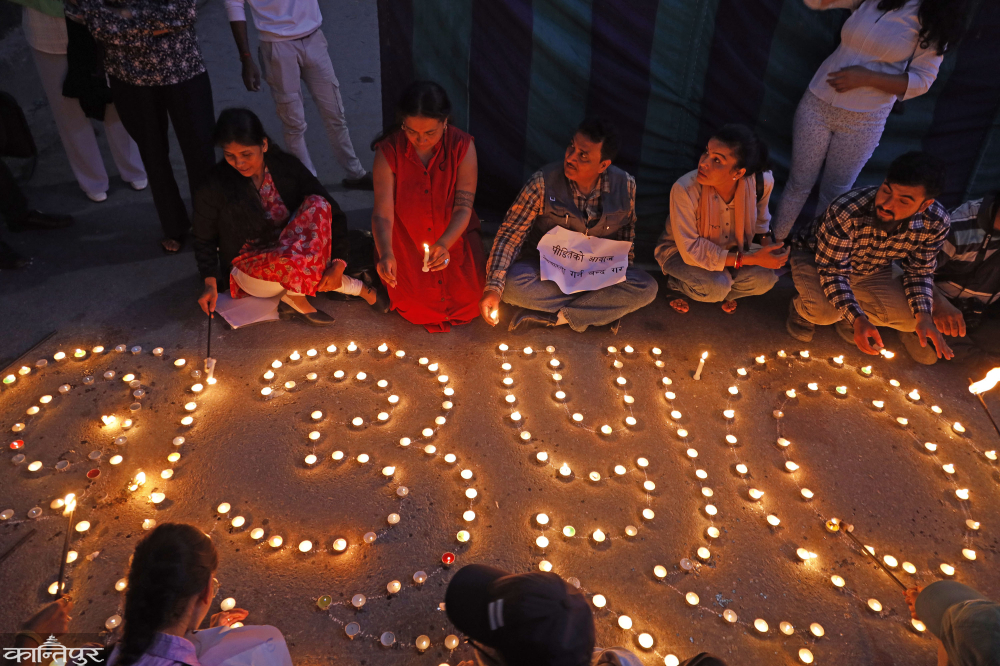
Surendra sometimes fainted on the way due to excessive bleeding, sometimes he was in a state of unconsciousness. When he was taken to the district hospital, the first aid was delayed when the army shouted, "Are you Maoists or what?" Until then, the bridge had not been built on the Kaligandaki, which flows between Myagdi and Parbat. The army helped him to take him to Pokhara by putting him in an ambulance that was stopped across the river. "I remember one time when I got to the hospital," he says. He also fondly remembers the injection given by the doctor.
"After that I was unconscious for five days, when I woke up I was in ICU, when I woke up, I didn't feel like my arm was gone until I opened my eyes," he says. But when he opened his eyes, he found himself in a situation he had never imagined. He didn't have strong hands that could smash the volleyball into the opponent's court with a rhythm. Even though both hands were amputated, the doctor left them unbandaged. "After seeing the sight of the severed hand, I felt like the world stopped at once," he says.
Even after returning home from the hospital, he was lost in a black tunnel of despair for several months. 'No matter what I did, I couldn't accept my condition,' says Surendra, 'I couldn't bear it anymore when people called me poor, so I left my jacket sleeves open for years.' met 'All of them were in a worse situation than me, some had no legs, some could not move their whole body, some had no eyes,' said Surendra, 'at that time I thought, there are many other people who are in a difficult situation than me, but they are still struggling to live and move forward. '
Surendra feels that 'I should do something for these friends too'. And left to hide his severed hands. Someone stopped Pirolin with a poor expression. He learned to write by holding a pen in both amputated hands. Passed SLC by resuming the interrupted studies. He trained his hands so that he did not depend on others to do ordinary work. And, more importantly, he started fighting for the rights of people with disabilities. 'There are many friends who have reached a situation like mine, I rounded them up,' he says. break Finally, in 2076, the 'National Network of Conflict Victims with Disabilities' was born. When the network was registered the following year, Surendra became its president. 350 people injured and disabled during the conflict are active members of the network. Ramchandra Vick of Pokhara, who lost both his legs in the Bewaris bomb blast, Anand Pandey of Calikot Tilagufa, who lost both his eyes in a bomb blast while working in the fields after the peace agreement, and Sunita Ghale, who lost one leg in the army raid in Lamjung, are among them.
In the 'Disappeared Persons Investigation, Truth and Reconciliation Commission Act' released in 2071, there was no provision on how to deal with incidents related to those injured and disabled after the peace agreement. Surendra brought the members of the network together and warned that transitional justice cannot ignore the pain they have experienced. As a result, in the newly amended Act, a provision has been made to take complaints of injured and disabled people after the peace agreement and provide them with compensation and justice.
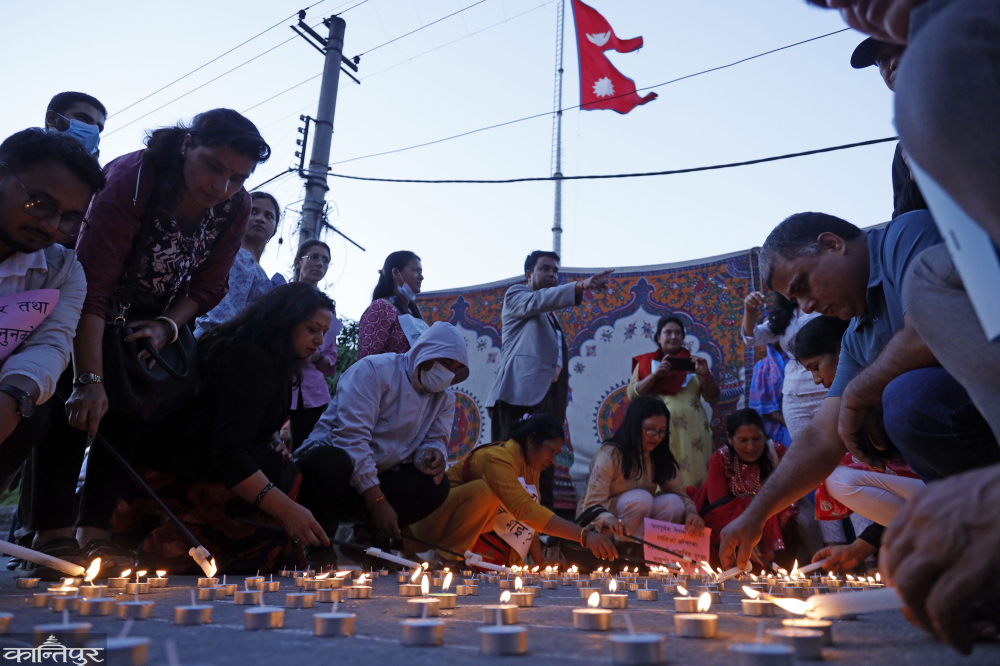
'When I was blasted, armed conflict was going on and after 5 months a peace agreement was reached,' says Surendra, 'Even after the peace agreement, many others have been dismembered due to landmines and left-behind bombs. These incidents cannot be ignored by the state, we have put it in the law. But the struggle for rights still continues.'
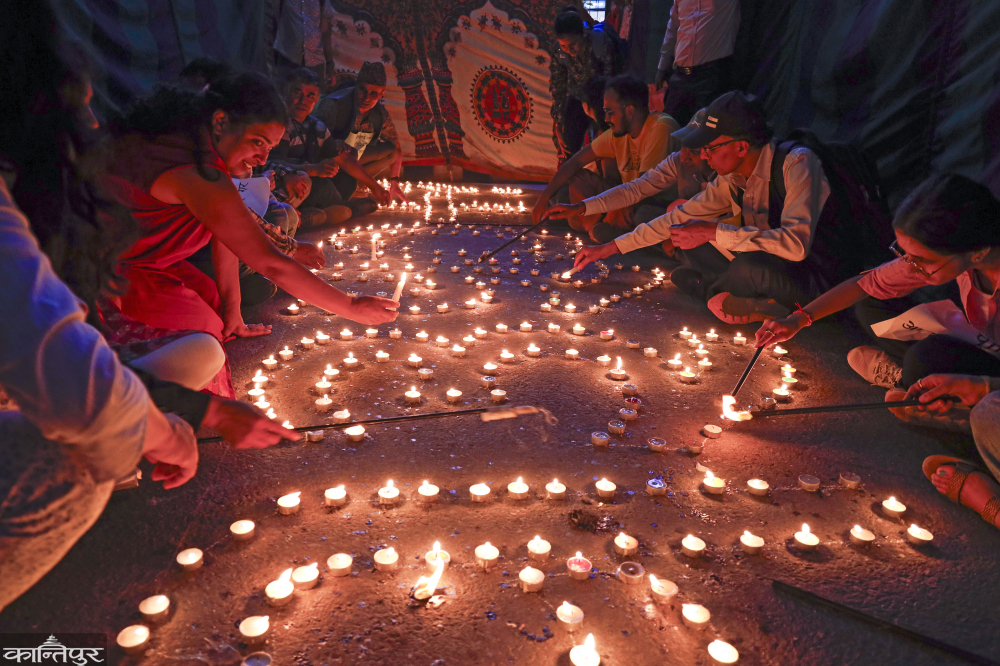
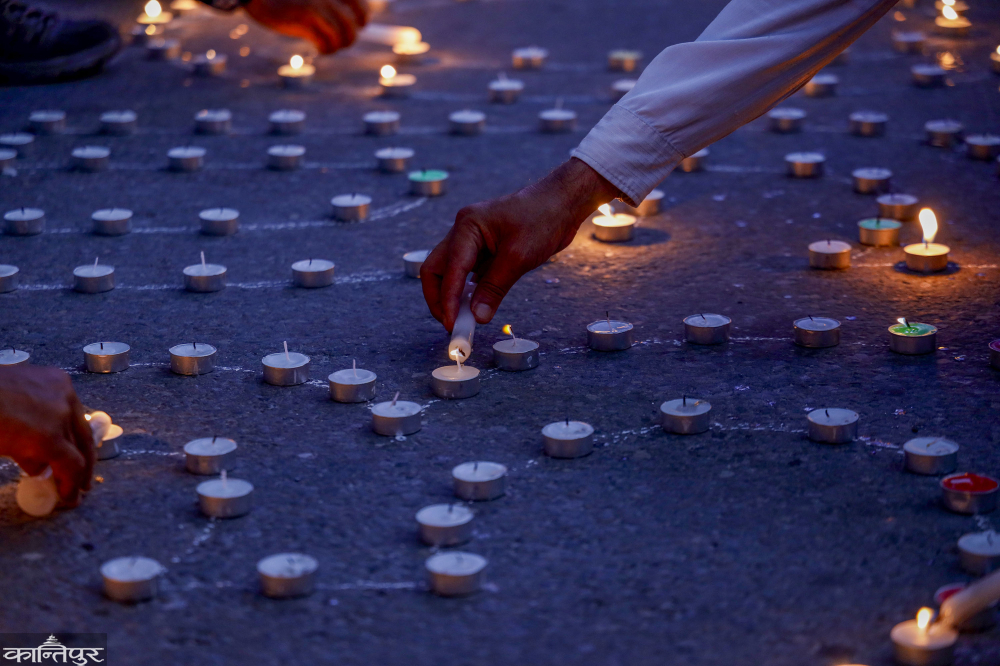
 प्रकाशित : भाद्र १५, २०८१ ०५:२८
प्रकाशित : भाद्र १५, २०८१ ०५:२८

 २९.१२°C काठमाडौं
२९.१२°C काठमाडौं











